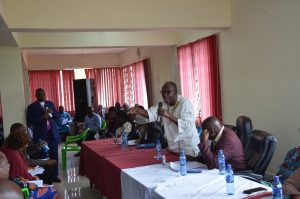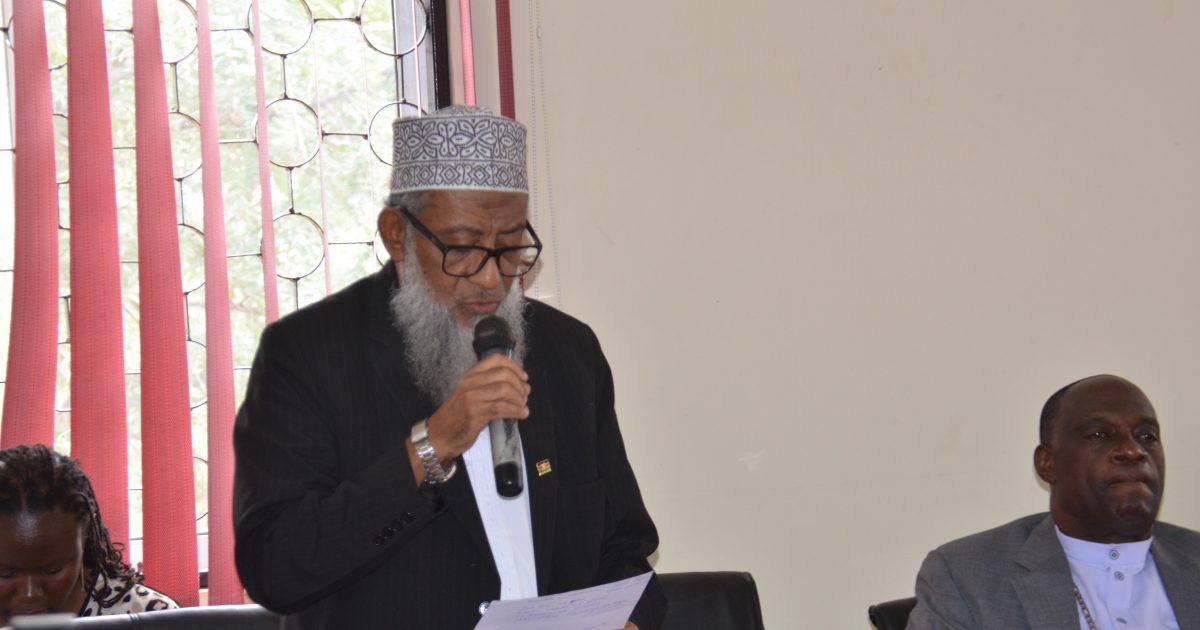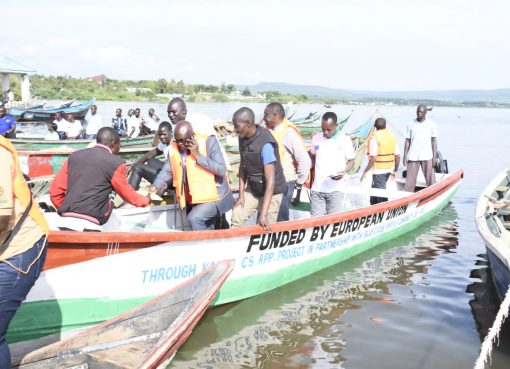Religious leaders in Taita-Taveta County have opposed the government’s involvement in regulation of churches, stating that religious institutions should be allowed to be regulated by their umbrella bodies.
The leaders stated that government regulation of church activities was tantamount to having state meddle in religious affairs, yet the constitution guaranteed Kenyans freedom of worship without undue influence from the government.
CIPK County Boss Sheikh Abdulaziz Noor stated umbrella bodies, including Supreme Council of Kenya Muslims (SUPKEM) for the Muslim community and National Council of Churches of Kenya (NCCK), had adequate systems and structures to enforce members compliance with the law.
Speaking during a public participation in Mwatate on Wednesday during a meeting with the taskforce reviewing laws governing the church, Mr. Abdulaziz stated that lawbreakers in religious institutions should be dealt with as individuals who have contravened the law.
“The government should empower umbrella bodies to supervise and ensure compliance with religious doctrines amongst members. Religion should not be controlled by the government,” he said.
Members of the taskforce present included the taskforce chairperson, Mutava Musymi, Bishop Eli Rop and Sheikh Mohammed Dor, among others.

Rev. Musyimi said the government was committed to guaranteeing freedom of worship and adoption of non-interference policy for religious organisations, provided the laws were followed. He stated that laws governing religious organisations and groups were being exploited by unscrupulous people masquerading as religious leaders, a situation that was casting religion in a bad light.
“I belong to a church but we must admit and be alive to the fact that when criminals take refuge in the church, the government has a duty and a responsibility to act,” he said.
He cited Pastor Paul Mackenzie’s radical religious teachings that led to the deaths of his members. He said that such acts could no longer be accepted as falling under religious activities and called for government intervention.
In his petition to the taskforce, Bishop Ronald Itambo of Taita-Taveta Bishop Welfare Association said that churches were committed to embracing self-regulation, with the oversight bodies being empowered to implement rules that conformed to religious teachings.
He further called for the introduction of the office of registrar of churches, which will be independent from the registrar of societies.
He noted that lumping churches and societies under one category had over time created the impression of churches as ordinary groups that were subjected to the rules governing other societies.
“Religious organisations are unique entities. They should be handled differently than in other ordinary societies. This calls for the office of registrar of churches, which should be devolved to handle religious groups at the county level,” he said.
The call for having a registrar of churches was endorsed by all leaders present, who argued it would streamline religious operations, including monitoring the activities of groups in counties.
Rev. Pristone Mwailongo from Association of Pentecostal and Evangelical Clergy of Kenya (APECK) said churches needed to be registered by a qualified officer who was well conversant with the activities and operations of churches. This, he added, would empower religious organisations to operate more uniformly and in tandem with their primary objectives.
“Separating registrar of churches from that of societies is likely to give room for churches to be managed more transparently for the betterment of society,” he said.
The leaders also called for creation of an alternative dispute resolution body that would handle disputes involving churches and other religious groups without going to court.
Bishop Donice Sindano said disputes between religious groups ought to be handled by an entity that recognises the dynamics governing such bodies. He stated that court processes had the adverse effect of reflecting religious organisations in bad light, despite the nature of the dispute involved.
“When a case goes to court despite its nature, it ends up reflecting badly on churches and any religious group that went to court. We need the law to establish an alternative dispute resolution mechanism to handle disputes among us,” he said.
Taita-Taveta County was the 15th county to hold a public participation event by the taskforce created to collect public views to strengthen and tighten laws to govern religious groups.
By Wagema Mwangi





